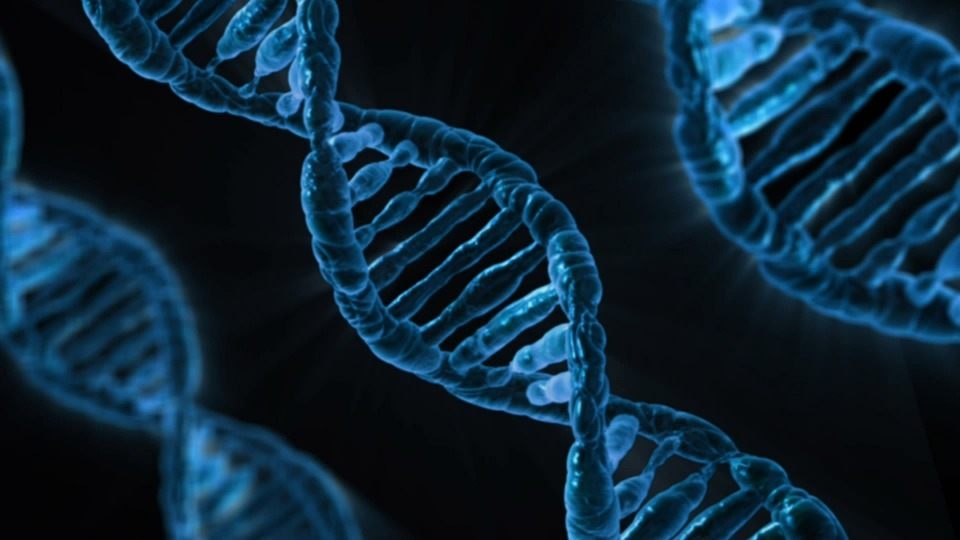Like us if you're starting to study for the MCAT, you're probably wondering, what's on the MCAT?
When we first started we felt overwhelmed too. We all scored competitively on the MCAT (you can read our bios here). So don't worry we're here to break it down for you!
But first, who are we? We're future doctors passionate about helping future doctors by providing proven MCAT prep strategies from our own experiences!
With that said, let's kick things off by busting a few myths about what’s on the MCAT.
4 Popular Myths About What Is On The MCAT
The Only Science You Need To Know Is Biology and Biochemistry
Sure, the MCAT will test your knowledge in the realm of human anatomy, and cellular biology. However, the science does not stop there. You’re also required to have an understanding of topics such as inorganic chemistry and physics.
You Don’t Need To Know Any Math To Achieve a Competitive Score on The MCAT
Having a good handle on math is important as a medical student, since you will be asked to review scientific studies and understand when a finding is statistically significant.
Thus, there is an element of mathematical problem solving on the MCAT. You may not need to know calculus, but you certainly need to be adept at arithmetic and algebra!
You Don’t Need To Know About The Social Sciences To Score Competitively On The MCAT
Psychology, sociology, ethics, philosophy and cultural studies are on the MCAT. These are all also factors in assessing and treating a patient’s physical and mental health!
You Can Achieve A Competitive Score On The MCAT Simply By Regurgitating Information
The MCAT is not simply a case of reading up on a topic and repeating what you have learned. You must demonstrate that you can apply your knowledge appropriately.
Achieving a competitive score on the MCAT requires not just the ability to remember what you’ve learned, but also your scientific reasoning, your problem solving, your critical thinking and your ability to make the right decisions.
What Is Actually On The MCAT?
The MCAT is split into 4 main sections:
Chemical and Physical Foundations of Biological Systems
This section looks at the physical principles underlying biological processes and the various chemical interactions involved.
To excel in this, you will need a good understanding of biology, organic and inorganic chemistry, and biochemistry.
You will also need to be equipped with a good understanding of research methods and statistics to apply scientific reasoning to your question answers in this section.

Critical Analysis and Reasoning Skills (CARS)
The CARS section of the MCAT is kinda like verbal reasoning. You are provided with written passages, and your comprehension of these passages is assessed.
These passages tend to be 500 to 600 words long, and you will be asked to consider what the passage says from multiple different perspectives.
This section does require practise, but is not necessarily going to be based on anything that you may already have prior knowledge of.

Biological & Biochemical Foundations of Living Systems
This section focuses primarily on biology and biochemistry, however it will also require an understanding of organic and inorganic chemistry.

You will be answering questions regarding molecular biology, biological processes, and the organization of biological systems.
You will also be required to apply knowledge you have gathered concerning research methods and statistics for any problem solving or reasoning questions that may arise.
Psychological, Social and Biological Foundations of Behaviour
There are other determinants of health and well being besides those in the field of hard sciences, and this section is included in the MCAT in order to test your understanding of the various behavioral and sociocultural determinants of health.

More specifically, this part of the test will cover such things as perception of self and others, behavior changes, the impact of cultural and social differences on well being, and social stratification.
Again, this section also requires you to apply your understanding of research methods and statistics.
What Skills Are Tested On The MCAT?

In addition to all that has been mentioned so far in terms of prior knowledge, you will also be expected to demonstrate proficiency in four different skills relating to scientific inquiry and reasoning.
These are as follows:
- Knowledge of scientific concepts and principles
- Scientific reasoning and problem-solving
- Reasoning about the design and execution of research
- Data-based and statistical reasoning
You will be required to: identify relationships between similar concepts, relate theories to explain conclusions drawn, understand the proper conduction of scientific experiments, and be able to draw conclusions from data.
This is not a separate section of the MCAT, but will be asked of you in each section.
So What Now? What's The Smartest Way To Learn All Of This MCAT Content?
We understand how daunting the MCAT sounds and how frustrating it can be to find the correct strategy and technique to approach your studying!
This is why we have created MCAT Mastery. To share our tried and tested prep strategies that can really boost your overall score, and give you that competitive edge.
Below is the link to our various MCAT strategy courses:
You can either take a course that focuses on your particular weaknesses or one that covers the whole thing.
We even offer one-to-one tutoring too. If this is of interest to you, check out the link below:
We'll get through this MCAT prep together and you'll be scoring high in no time, you got this!
The MedLife Mastery Team
Your MCAT Success Mentors
For more information on the MCAT and what it covers, check out this video!


 To help you achieve your goal MCAT score, we take turns hosting these
To help you achieve your goal MCAT score, we take turns hosting these 
